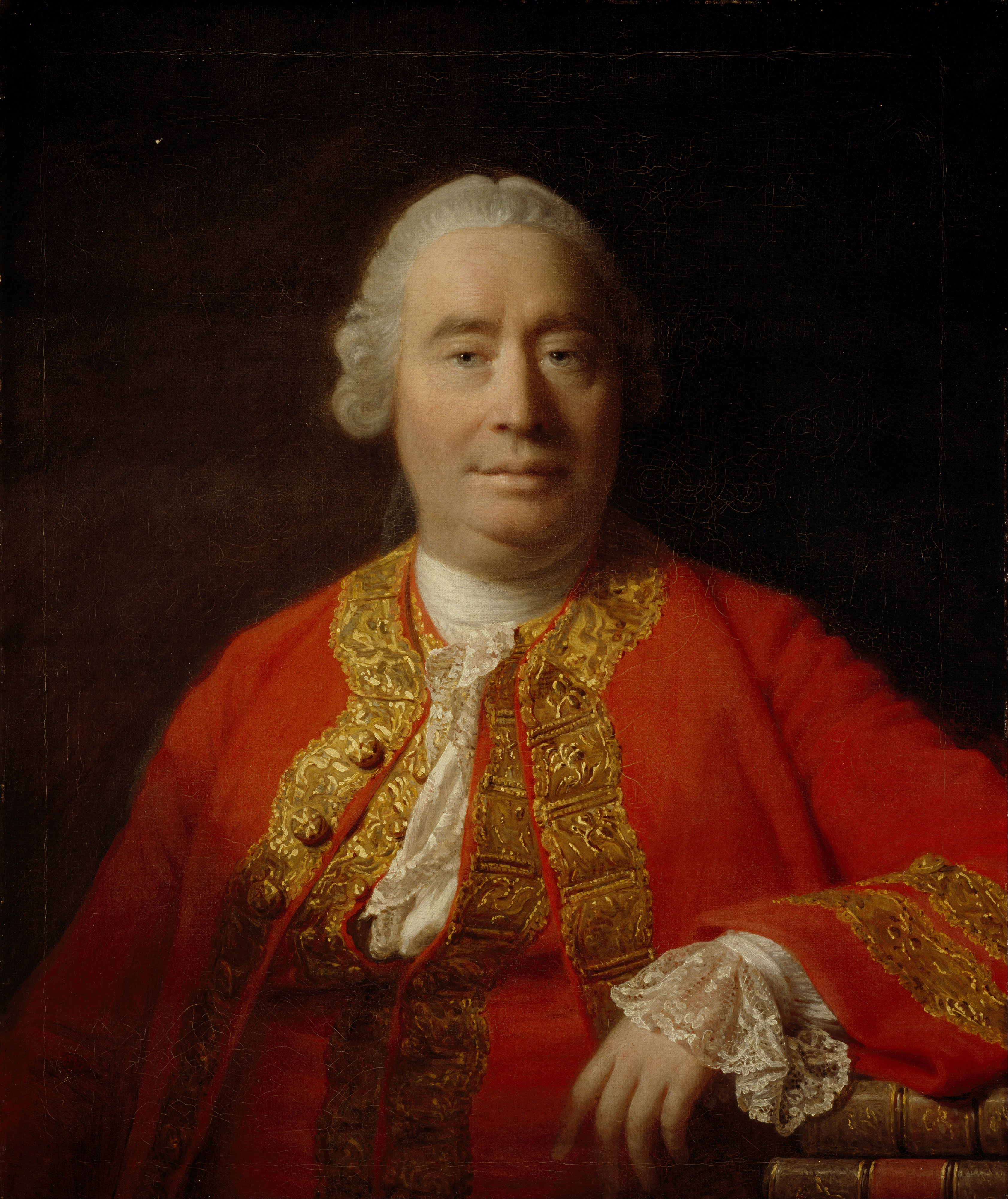David Hume Frases famosas
O Livro da Filosofia, pg. 150 - Editora Globo"
“A beleza não é uma qualidade inerente às coisas. Ela existe apenas na mente de quem as contempla.”
Beauty is no quality in things themselves: It exists merely in the mind which contemplates them
Essays and treatises on several subjects, Volume 1 - Página 225 http://books.google.com.br/books?id=QV4VAAAAYAAJ&pg=PA225, David Hume - Printed for Bell and Bradfute, 1825
Variante: A beleza das coisas existe no espírito de quem as contempla.
Citações de homens de David Hume
“O coração do homem existe para reconciliar as contradições.”
the heart of man is made to reconcile contradictions
Essays and treatises on several subjects, Volume 1 - Página 64 http://books.google.com.br/books?id=QV4VAAAAYAAJ&pg=PA64, David Hume - Printed for Bell and Bradfute, 1825
“Seja um filósofo, mas, no meio de toda sua filosofia, não deixe de ser um homem.”
Be a philosopher ; but, amidst all your philosophy, be still a man.
Essays and treatises on several subjects - Página 285 http://books.google.com.br/books?id=EHQRAAAAIAAJ&pg=PA285, David Hume - Printed for A. Millar; and A. Kincaid and A. Donaldson, at Edinburgh, 1758 - 539 páginas
Next to the ridicule of denying an evident truth, is that of taking much pins to defend it; and no truth appears to me more evident, than the beasts are endow'd with thought and reason, as well as men. The arguments are in this case so obvious, that they never escape the most stupid and ignorant.
A treatise of human nature: reprinted from the original ed. in 3 v - Página 176, David Hume - Clarendon Press, 1949 - 709 páginas
Frases sobre idéias e pensamentos de David Hume
David Hume frases e citações
“O hábito é o grande guia da vida humana.”
Custom, then, is the great guide of human life
Essays and treatises on several subjects, Volume 2 - Página 44 http://books.google.com.br/books?id=dDU1AAAAIAAJ&pg=PA44, David Hume - Printed for Bell and Bradfute, 1825
O Livro da Filosofia, pg. 152 - Editora Globo"
Indulge your passion for science, says she, but let your science be human, and such as may have a direct reference to action and society. Abstruse thought and profound researches I prohibit, and will severely punish, by the pensive melancholy which they introduce, by the endless uncertainty in which they involve you, and by the cold reception your pretended discoveries shall meet with, when communicated.
Essays and treatises on several subjects - Página 285 http://books.google.com.br/books?id=EHQRAAAAIAAJ&pg=PA285, David Hume - Printed for A. Millar; and A. Kincaid and A. Donaldson, at Edinburgh, 1758 - 539 páginas
If we take in our hand any volume; of divinity or school metaphysics, for instance ; let us ask, Does it contain any abstract reasoning concerning quantity or number ? No. Does it contain any experimental reasoning concerning matter of fact and existence ? No. Commit it then to the flames ; for it can contain nothing but sophistry and illusion
Essays and treatises on several subjects, Volume 2 - Página 167 http://books.google.com.br/books?id=dDU1AAAAIAAJ&pg=PA167, David Hume - Printed for Bell and Bradfute, 1825
There is no method of reasoning more common, and yet none more blameable, than, in philosophical disputes, to endeavour the refutation of any hypothesis, by a pretence of its dangerous consequences to religion and morality. When any opinion leads to absurdities, it is certainly false; but it is not certain that an opinion is false, because it is of dangerous consequence.
An Enquiry Concerning Human Understanding, Sec. VIII, par. 75 https://en.wikisource.org/wiki/An_Enquiry_Concerning_Human_Understanding#PART_II._4
David Hume: Frases em inglês
§ 8.18
An Enquiry Concerning Human Understanding (1748)
.
Part 1, Section 1
A Treatise of Human Nature (1739-40), Book 3: Of morals
'My Own Life' (1776), quoted in David Hume, Essays: Moral, Political, and Literary (1741–1777), ed. Eugene Miller (1985), p. xxxvii
Part 2, Section 12
A Treatise of Human Nature (1739-40), Book 2: Of the passions
Part 1, Section 1
A Treatise of Human Nature (1739-40), Book 3: Of morals
Philo to Demea, Part VII
Dialogues Concerning Natural Religion (1779)
Part 4, Section 1
A Treatise of Human Nature (1739-40), Book 1: Of the understanding
Philo to Cleanthes, Part XII
Dialogues Concerning Natural Religion (1779)
“Every thing in the world is purchased by labour.”
Part II, Essay 1: Of Commerce
Essays, Moral, Political, and Literary (1741-2; 1748)
Part XII - With regard to doubt or conviction
The Natural History of Religion (1757)
§ 4.9
An Enquiry Concerning Human Understanding (1748)
Part XII - With regard to doubt or conviction
The Natural History of Religion (1757)
Section 10 : Of Miracles Pt. 1
An Enquiry Concerning Human Understanding (1748)
Part I, Essay 18: The Sceptic
Essays, Moral, Political, and Literary (1741-2; 1748)
Part 3, Section 2
A Treatise of Human Nature (1739-40), Book 2: Of the passions
For what can be imagin'd more tormenting, than to seek with eagerness, what for ever flies us; and seek for it in a place, where 'tis impossible it can ever exist?
Part 4, Section 3
A Treatise of Human Nature (1739-40), Book 1: Of the understanding
Part XIV - Bad influence of popular religions on morality
The Natural History of Religion (1757)
